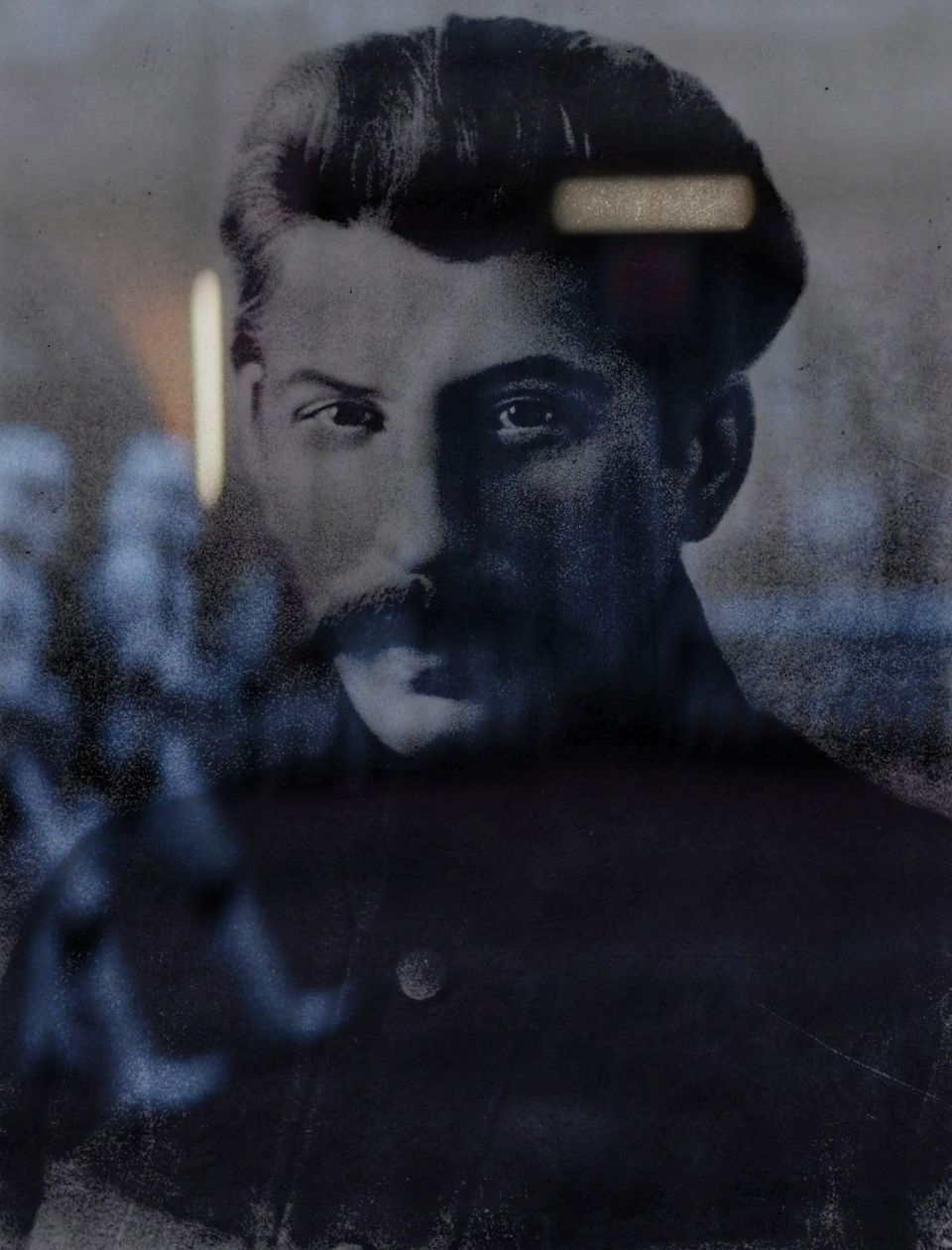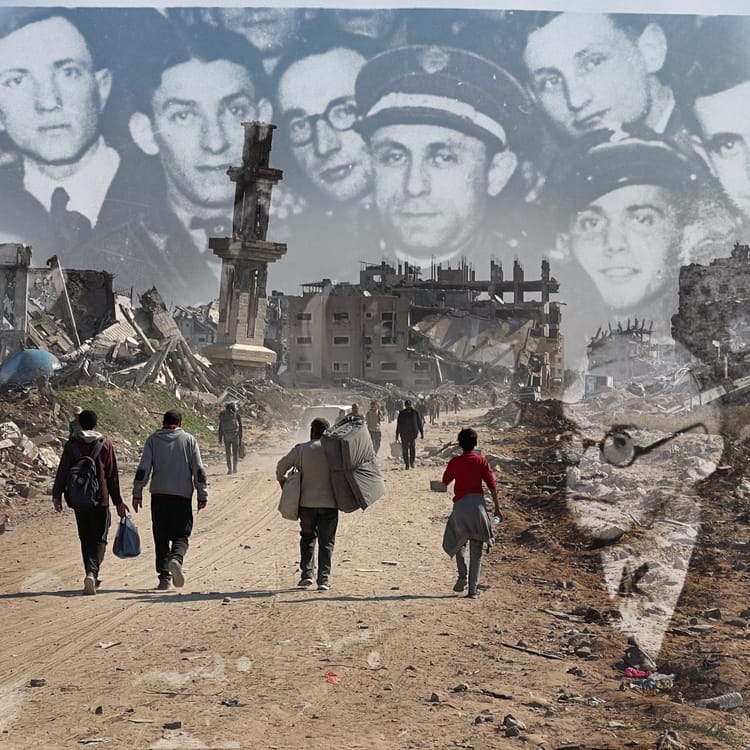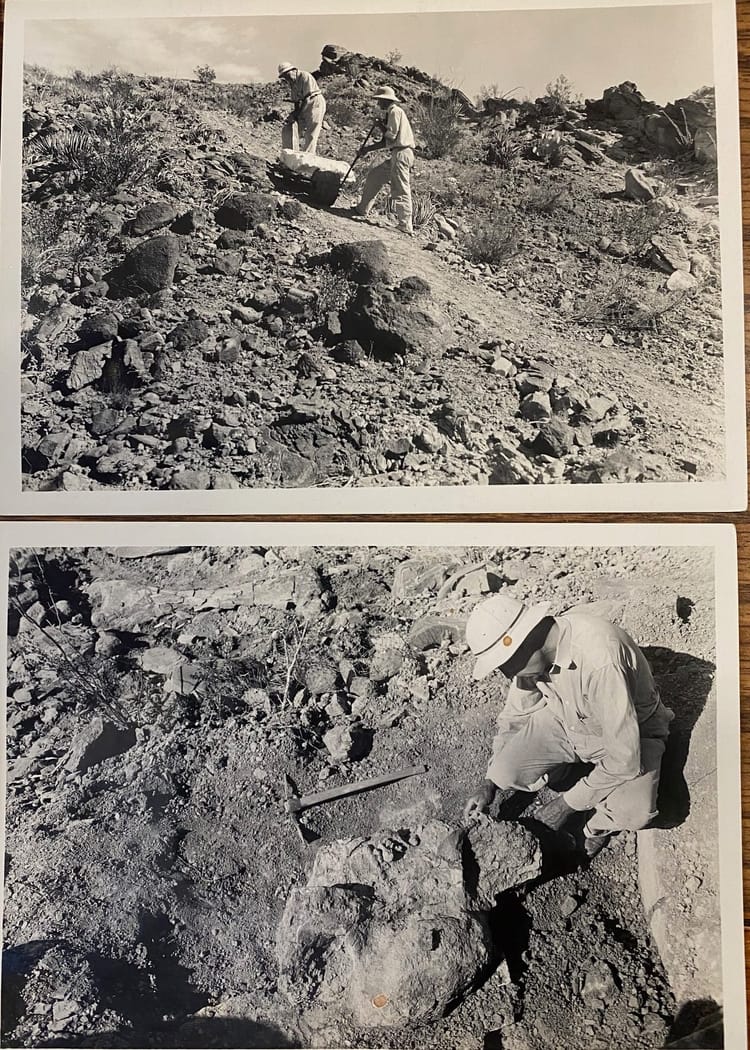Decline and Fall Annex: Kosher Torture

A police inspector enters a room where a prisoner waits, handcuffed, glaring. The inspector is tall, austere, driven. She is the rare woman to find herself in this sort of senior role. She knows this, and that she cannot afford to fail.
So she faces her quarry, steeling herself. Just weeks before, terrorists struck a critical government outpost — sowing chaos in the heart of the state and provoking the powers-that-be into a harsh crackdown. Part of that crackdown has brought this officer here, to this room, to face this prisoner.
The prisoner may know something about the attack — in fact, she may be in contact with the people who carried it out. She may even have information that could help prevent the next one.
That would be good for the state —and better for the officer's career.
But there is one problem: the prisoner isn't willing to talk. And time is running out; every second brings them both closer to the next attack. So the police officer makes a familiar offer: Talk now, willingly. Or talk later, after we break you.
But the officer is a professional. There will be no shattered bones or splintered teeth; no fingernails ripped from mangled hands. As thousands of detainees have learned — as they hung in stress positions or were kept awake for days by flashing lights or gasped in panic from the simulated drowning of waterboarding — torture need leave no mark to leave scars.
The inspector gives the suspected terrorist one more chance to speak, then nods to a doctor, who with a hint of apology places a pair of headphones over her ears. There is a long pause. And then the prisoner begins to scream, and scream, and scream.
Welcome to Heat Death, the newsletter that knows what a reckoning sounds like.
Late November finds the Brothers Elbein working on the next iteration of the newsletter and online community space. (The short version for those not subscribed to our email list: commenting is open for everyone, and we’ll be launching a Discord server for paid members pretty soon.)
More to the point, we’re also working on the next installment in Decline and Fall, our intertwined history of the Star Wars cycle’s Galactic Civil War and the decay of the American empire that inspired it — and that winds around it.
We’ve previously sketched out the broad historical arc, covered The Phantom Menace, and pondered Attack of the Clones. Our next installment will cover Revenge of the Sith, chronicling the long-brewing collapse of the broadly democratic Republic into an authoritarian state.
But before we get to that, let's take a sneak peak at what we're building toward. Fifteen years after the end of Revenge of the Sith, the Empire is slowly tightening its grip, while sidelining or bending the remaining institutions of the Republic into hideous new configurations.
That’s the setting for Andor, Disney's first sally into the Star-Wars-for-grown-ups approach that we've been pursuing here at Heat Death. (We welcome their joining the party.) The first season — which just wrapped this week — is a frankly miraculous creation: a tightly written, well-acted, brilliantly conceived. More than any other Star Wars project, it also depicts in minute and horrifying detail the world that the Republic is sliding towards.
Above all, it shows a phase-change that, as we will discuss today, is as disturbing for its continuities as its differences.
Here are four lessons from the world of Andor to steel our spines as we prepare to watch the death throes of the Republic.
The Republic Never Fell
Saul here. We often believe that if a liberal state falls to fascism, the change will occur obviously and all at once. The blackshirts will arrive, sociopathic and garish in their clownish evil. The black banners will unfurl from the tops of buildings, in a clear sign that you are now oppressed. The fascists will come, somehow, from outside, overthrowing the old order wholesale.
This vision is a comforting lie. What actually tends to happen is a long slide along a previously existing continuum, a tightening of previously existing screws. Even as the new regime takes power, it will not always be clear what has and hasn't changed.
And so, in Andor, much of the structure of life under the newly-imperial Republic seemingly remains the same. The roughly hexagonal banner of the Republic fleet still emblazons newer models of the same sleek triangular warships, which patrol the same shipping lanes. The Senate still meets and politicks and horse-trades. The same corporations turn out the same familiar products; soldiers in the same bone-white armor still patrol the Outer Rim.
And if the ships and the banner are now symbols of terror; if the Senate is just a neutered country club for the exchange of favors; if those corporations now produce those products with forced labor; if the expensive clones who wore that armor have been replaced by cheap conscripts— well, unless you looked too closely, you might not notice.
Andor gets some of its most powerful and disturbing images from this sense of persisting Republican form beneath a perverted Imperial function. Consider the warden of the prison-workshop on Narkina 5 who extols the hygienic and humane virtues of his facility — in an address to new prisoners, who eventually discover that they are expected to work themselves to death on arbitrary sentences, building war materiel for free.
Or consider the torture scene with which we opened. The scene is set up to make us expect some kind of Spanish Inquisition-style cruelty — what we get is, in its way, worse. Perhaps even before the Empire rose from the ashes of the Republic, the state forbade such bloody methods as cruel — not to mention crude. Barbaric and unnecessary tools demoralize the officer corps and lend moral support to the terrorists' cause.
But more to the point, Imperial interrogators don’t break bones because they don’t need to — they have more effective methods of breaking prisoners. The doctor-torturer's patter as he unwraps his device suggests that he's proud to use such enlightened methods, and proud of the technological elegance that permits them. His device — a no-marks form of inflicting pain — strongly suggests an approach that’s in technical compliance with still-extant Republic laws against torture. (It’s a technology also, as we'll discuss momentarily, is the direct result of an open genocide.)
Throughout the series, we see other examples of such zombie fig-leaf rules — like the Empire’s reform of sentencing guidelines to provide a legal imprimatur for a press-gang operation to feed slave labor into the work camps. A kind of liberal facade that lets a witness say, "Yes, well. Things may have changed. But there's still a Senate. There are still some rules."
Even Mon Mothma — a wealthy Chandrilan senator and secret financier of Rebel activity — believes this to some degree. She is funneling her personal money into a variety of clandestine causes, and she recognizes that she must now act as Palpatine did: present herself as a harmless believer in the system in which she finds herself, even as she seeks to overturn it.
But Mothma is not Palpatine, and she clings to the notion that the Senate she initially entered still exists, in some way. When faced with the fact that change will require genuine violence and a full break with the theory of ongoing Republican order, she drags her feet. She chooses to believe that she can still work — at least partially — within the rules.
But there are no rules going forward, her contact tells her. Or to be more accurate, the rules now are Palpatine’s rules, just as it is now Palpatine’s Senate and Palpatine’s reshaped Republic-turned-Empire. And most of her colleagues are perfectly happy to play by them. In a posh party a group of politicians wryly discuss new, more restrictive legislation that their emperor has pushed through their legislative body. Mothma believes the legislation — which, among other things, funnels prisoners into endless sentences at forced labor camps like Narkina 5 — is excessive.
But it’s all in the interest of public safety, her colleagues tell her. Palpatine can overreact sometimes, naturally, but it’s all very normal, surely. And the conversation soon turns to the drinks.
It’s a scene that directly recalls the intellectual gyrations of America under George W. Bush. It echoes the ‘national security’ apparatus that surveilled and entrapped American citizens, in the interest of ‘public safety.’ The ostensibly harmless ‘enhanced interrogation techniques’ like waterboarding, sleep deprivation and sensory overload. The careful use of foreign client-state cops and black sites to keep American hands plausibly clean. And, of course, the nakedly aggressive wars covered by the faint wisp of U.N. sanction.
It's comforting to believe that if things really changed for the worse, you'd know — and, conversely, that if the appearance of law still stands (at least for people like you), things must not yet be that bad.
But monsters hide in the space between form and function. Kosher torture is still torture.
Evil Is Boring
One of the classic images of totalitarian evil is a boot stamping on a human face forever, just for the sheer joy of it.
This sort of sadism does exist, but it is rare. A more compelling vision is a functionary like Inspector Dedra Meero — the cop we introduced above. Meero claims that she would prefer not to stomp on your face. But (as she likes to say) she will do it if you make her.
Meero is, as we noted above, a professional above all else: a highly talented rising star in the perpetual bureaucratic cage match of the Imperial Security Bureau — an FBI-like entity charged with heading off threats to the regime. She’s an excellent officer, ferreting out the existence of the nascent underground Rebellion from what appears to be a spate of unrelated thefts of Imperial equipment. She is efficient, clever, and creative, able to use all the levers of the state in the service of a particular, rigid view of law and order.
She also represents a paradox. While she is perfectly willing to torture and kill in the name of state security — and seems to take a craftsman’s pleasure in the terror she inspires — she’s almost appallingly non-ideological. Her response upon meeting zealots for the Empire is thinly-veiled disgust — an unspoken, incredulous 'You mean you believe this shit?'
Meero is, in other words, a pure technocrat, moving as ruthlessly to advance her career under the Empire as she likely would have under the Republic.
In fact, it’s easy to imagine her doing precisely this job under the Republic. Looking around the Imperial Security Bureau boardroom where she works, we see supervisors ranging in age from their mid-30s (as she seems to be) to their early 70s, like her boss, Major Partagaz.
At her youngest, Meero would likely have been in secondary school or at a Republic police academy when the old regime fell. Her quick-witted boss Partagaz likely had a full life as an officer under the Republic. (Which raises some uncomfortable questions about the precise nature of Republic predecessors to the ISB. Were they perhaps formed, like the Office of Strategic Services, as a wartime office — one that stuck around to enforce state power after the war ended?)
Both of these are talented, sensible, no-nonsense characters. Partagaz in particular comes off as a good boss, noticing Meero's promise, protecting her and giving her the space and autonomy to work.
However, these virtues are dimmed significantly by the purpose to which they are turned.
Hannah Arendt coined the famous phrase "the banality of evil" to describe men like Albert Eichmann, the architect of the Nazi genocide program kidnapped, tried and hanged by Israel in 1962. She did so to point out an uncomfortable truth: that for all the cartoon-villain affect of many in the Nazi ruling circle, much about the regime and those who upheld it was terribly ordinary.
That in fact, they had to be overwhelmingly ordinary. Because the complicated operations — like the race war against the Soviet Union, or the genocide in the death camps and dark forests of Eastern Europe — required careful planning and boring logistics. The trains had to arrive in the right places full, and leave empty. Which meant some responsible adult had to design the routes and plan the timetables.
To be more than a pogrom — an outburst of sudden violence, quickly unleashed and quickly dissipated — a genocide like the Holocaust requires a staid, ambitious and reasonably competent bureaucracy. It cannot happen without masses of "good people'": those who are dependable, hardworking, ambitious, and patriotic.
The genociders knew it, too. In 1943, in a now-famous secret 1943 speech delivered to SS officers on the Eastern Front, SS-head Heinrich Himmler favorably compared his men to those "eighty million good Germans." The civilians at home might understand, intellectually or as a party credo, that the Jews must be exterminated — but were too squeamish to extend this idea to the "first-class Jew[s]" they knew personally, Himmler said.
His officers were different. "Most of you know what it means to see a hundred corpses lying together, five hundred, or a thousand…to have gone through this and yet – apart from a few exceptions, examples of human weakness – to have remained decent fellows, this is what has made us hard."
Himmler killed himself with a cyanide capsule, escaping a near certain trial and execution by the victorious Allies, who also tried hundreds of other SS-members. But the SS Corps numbered close to a million, most of whom were quietly reintegrated into civilian life after the war. All across German society, in fact, millions of once-ardent German Nazis quietly morphed into enthusiastic or apathetic Communists and liberals, with particularly useful functionaries and scientists swiftly integrated into the American and Soviet empires.
It is hard to imagine that Meero or Partagaz will survive Andor. But it is basically certain that millions of Imperial technocrats just like them will still be at their posts fourteen years later, when the Empire is decapitated at the Battle of Endor.
At which point, in all likelihood — if our own world is any indication — they will find work helping run the New Republic, their past conduct conveniently forgotten.
Every government, after all, needs good people.
Contracting Out
One reason why it may be hard for Imperial citizens to fully grasp the extent to which their government has changed is that the government has melded with the corporate sphere.
In the mining colonies and scrapyards of Ferrix, for example — where Andor begins — the Empire is a shadowy and rarely witnessed force, and everyday law enforcement is carried out by the gun-thugs of Preox-Morlana corporate security. Such gun-thugs seem to be a relatively rare sight in the Ferrix free-trade zone, in fact, where the ruling company seems mostly to rely on a network of local informants for its investigations. In the absence of any particular governance, social organizations like the Daughters of Ferrix seem to pick up some of the slack. Ferrix thus sits under corporate rule, but the leash isn’t pulled particularly tight.
At its most benign, these levels of delegation allow for local decision making by local corporate officials, who keep the wheels oiled with a bit of light corruption — a creaky, lawless but largely functional system that is out-of-keeping with the new iron-handed zeal spreading in the Empire.
After protagonist, hustler and reluctant rebel Cassian Andor murders a pair of corporate security men who have accosted him, the company’s chief of police rather sensibly attempts to cover the killings up — the better to avoid drawing unwelcome Imperial attention to his jurisdiction. (The attempt only fails because one of his deputies is a true believer in Imperial justice, a conviction that subjects him and everyone around him to a conga-line of humiliation, culminating in a full Imperial takeover of the system.)
More malignant is the way that corporate structures — both legitimate and criminal — serve as paramilitary and para-political organizations to back up official Imperial power. In Andor, that’s the corporate conglomerate Preox-Morlana, which holds a charter to run an entire star system as a set of company towns, policing their workers at minimal Imperial cost. Other Star Wars films like Solo depict organized crime cartels like the Pyke Syndicate and Crimson Dawn playing a similar role on the fringes of Imperial space, terrorizing dissidants and subjugating resource-rich worlds with tacit official support.
It’s an echo of the way that right-wing regimes throughout the 20th Century — from 1960s Java to 2000s Colombia— worked hand-in-glove with organized crime in the perpetration of deniable atrocities, generally the mass murder of communists, ethnic minorities and the poor.
These kinds of collaborations help support one of the other malignant hallmarks of 20th Century fascism — its bedfellow relationship with big business.
Fascist Germany and Italy demonstrated a view of private property rights that can be charitably described as "functional." Ultimate decisions about the economy rested with the ruling regime, but not necessarily through a planned economy. What occurred instead was the fullest expression of crony capitalism. Business leaders who weren't sufficiently supportive of the regime risked being crushed. Meanwhile, those that were gained enormous wealth and a fairly free hand — as well as the sort of plum contracts impossible in a regulated fair market.
Thus, the Imperial economy as depicted in Andor and elsewhere, for example, makes widespread use of forced labor. From what we see of such a forced labor facility — one of the most chilling prisons ever to be brought to screen — prisoners are worked to death not in breaking rocks or digging ditches but rather in the production of manufactured goods. On a broader scale, the economy is marked by an astonishing proliferation of enormous, brutal infrastructure projects in odd places.
The torture tapes used to break the suspected terrorist in our opening, for example, come from one such project. They are the haunting, recorded screams left after the wholesale genocide of the population of a verdant moon — "removed" to make way for some Imperial facility. Similarly, an early set-piece on the garrison planet of Aldhani takes place in a river valley sacred to the local population — from which they have been forcibly excluded to make way for an Imperial military fortress.
We do not know who received the contracts for this construction, or at whose behest the population of that moon was wiped out. What we do know, however, is that prior to the raid on Aldhani, the Galaxy is at relative peace. Imperial rule, however much it may be resented, is largely borne (and complied with) by subject populations — raising the question of why such facilities are needed.
One possible answer: graft. Or to put it more charitably, "military Keynesianism" — the use of a state militarization drive to line corporate pockets and stimulate employment. The 20th Century “free world” held many examples of this as well: chief among them the pre-World War II rearmament drive that pulled Germany (and then America) out of the Great Depression.
The trouble with creating a state dependent on such spending, however, is that it becomes nearly impossible to shut off. After World War II, the US faced the possibility of massive unemployment as wartime industries, no longer needed, shut down. The Cold War against the Soviet Union thus helped create a source of infinite stimulus for American manufacturing communities — who busily began building up enormous weapons stockpiles that, once on hand, were far easier to use.
Or, failing that, to sell to other people for them to use.
This process never actually ended, either. In June, a solidly bipartisan U.S. Congress passed the 2023 Defense Appropriations bill — a nearly $750 billion grab bag of hidden stimulus spending, expanding the American production of machines designed expressly for dealing out death.
The money was an investment in "creating good-paying union jobs, ensuring a safe environment for our service members and their families, and taking on the very serious security threats facing our nation and the world, such as ongoing Russian aggression and climate change," House Defense Chair Chair Betty McCollum (D-Minn.) said in a statement.
Notice, please, what Chair McCollum put first on that list.
Violence Cuts Both Ways
One of the great myths of America is the idea that violence against evil is a redemptive and purifying act. In Westerns and comic book flicks and the undead cultural memory of World War II, violence against a deserving enemy takes on an almost-religious resonance — righteousness flowing out of the barrel of the gun. As an heir to all of the above cultural streams, the original Star Wars relies heavily on the idea that evil is rather like a Death Star: the sort of big, concrete object you can blow up and feel good while doing it.
But taken as a whole, Star Wars rather blatantly undercuts this vision. As friend of the newsletter and historian of collapse Patrick Wyman told us last year, that first battle above Naboo rang a bell that could not be unrung. Once open civil conflict came to the heart of the Republic, further unraveling became impossible to stop. Viewed in its full sweep from The Phantom Menace to The Rise of Skywalker, the Star Wars saga tells how violence comes into the heart of the state — and rips it out.
Andor traces the early days of this final internal collapse: the formation of what will become the Rebel Alliance. In less skillful hands, the show could have been framed as a wholly triumphant tale: the rah-rah origin story of the brave band of freedom fighters who ultimately brought down the Empire. And there is a certain hard-edged triumph to it: the joy of watching oppressed people hit their limit and decide, enough. It’s a story of genuine bravery, solidarity, and hints of new possibility.
But the show is also relentlessly focused on colder concerns. It’s perhaps the first exploration in Star Wars of anything approaching political economy: a loving and borderline-obsessive deep-dive into how the Rebellion went from a scattered band of dissidents to a quasi-state able to challenge the Empire in open fleet battles. Or, to put it another way: how you fund a rebellion, and who (in all senses of the word) pays for it.
In an interview with Rolling Stone, showrunner Tony Gilroy notes that the Andor heist is inspired by an early-20th Century bank robbery led by, of all people, Josef Stalin. (A historical figure — Gilroy notes in passing — also looks more than a bit like Diego Luna, who plays Cassian Andor.) "Stalin was Lenin’s financier," Gilroy tells Rolling Stone's Brian Hiatt. "He was a thief. And the reason Lenin loved him so much was he kept bringing the money. They needed money. This shit all costs money. People gotta eat, they gotta get guns. You gotta get stuff."
It’s an acknowledgement that Girlroy is working in a somewhat murkier moral universe than Star Wars initially seems to espouse. Stalin, after all, went from thief and revolutionary to — after the revolution he helps finance seized power — a back room schemer who seized the levers of the state, murdering his way to a position of ultimate power. In Star Wars terms, his arc somewhat resembles Emperor Palpatine.
Was the Russian Revolution — or the Rebellion against the Empire — therefore a mistake? That naturally depends on who you ask: the oppression and systemic failures that spurred the uprising were real, and needed to be fixed.
But that’s the thing about violence: break a system, and you don’t know what (or who) will arise from the wreckage. This makes them acts of radical hope, but also creates the possibility of radical ruin. The Russian Revolution was followed by the Russian Civil War, a conflict between the reactionary White faction and the Bolshevik Reds that eventually ended with Stalin atop a reimagined and revitalized Russian Empire. Extend the analogy to Star Wars, and the civil war stretches out over decades: a see-sawing struggle between imperialists and anti-imperialists that leaves the many worlds in the crossfire burning or destroyed.
In Andor, nobody is more aware of this danger than Luthen Rael, the Rebel organizer and spymaster played by a world-weary Stellan Skarsgård.
Throughout the show, Rael has been a slightly sinister figure, orchestrating events, playing angles, always with an eye toward funding and equipping the nascent violent uprising. He’s an accelerationist who understands that for his war to work, his enemy must be provoked into rash and violent action — the sort of actions that will harm the people he’s ostensibly fighting to help.
In a powerful monologue late in the series, Rael meets with a high-level source he’s placed in the ISB. Challenged by his terrified source about what he’s sacrificing, Rael lays himself bare. Once, he says, he began the campaign against the Empire out of his own vanity, and now he is trapped: the same ego that drove him to begin the fight now has left him locked in the shadows, never to be feted, or perhaps even remembered. "I yearned to be a savior against injustice without contemplating the cost," he says. "And by the time I looked down, there was no longer any ground beneath my feet."
"What is my sacrifice?" he spits. "I’m condemned to use the tools of my enemy to defeat them. I burn my decency for someone else’s future. I burn my life, to make a sunrise that I know I’ll never see." But violence — even in service of what feels like a necessary cause — is necessarily unpredictable and corrosive.
We don’t know what politics Rael began with. (When partisan Saw Gerrera asks in an earlier episode, he has a pat answer ready: “I’m a coward.”) And thus we don’t know quite what sort of sunrise he’s working toward, what sort of morning he’s burned his decency for: we just know it’s one that doesn’t include Palpatine or his empire.
In that, he’ll get his wish. Yet what makes Skarsgård's delivery of the speech so compelling and tragic is the visible uncertainty of whether or not such a victory will ultimately matter. He seems to be a man in the process of realizing the sheer, unbelievable cost of the war that he’s helping to begin. He has discovered that he believed in the myth of redemptive violence: that it’s clean, safe, and something you can turn on and off at will. He knows better now. Violence — even in a necessary cause — is unpredictable and corrosive, and it leaves nobody’s hands clean.
The violent revolt of the Rebellion — a fractious coalition of ideologues, dissidents, opportunists and organized criminals — is an act of desperation as much as anything else. It’s something that happens because all other ways are shut, all other means of redress are closed. The yoke of the Empire is an evil thing, and it must be thrown off.
And the members of that revolt — whether new characters like Rael and Cassian Andor, or the classic Lucas heroes like Luke Skywalker, Leia Organa, Han Solo — will ultimately succeed in destroying the fascist leadership of the Empire. They will even, after a fashion, bring down the Empire itself.
But they will not accomplish peace, either for the Galaxy or for themselves. Each will pay a terrible price for the carnage they have helped unleash. Some will die for the cause. Some will die having failed it. Others will live to see the ruin of all of their hopes, and pass new problems on to their successors. Their saga will close with the end of an era: the decline and fall of the universal galactic government.
In the short story Deutsches Requiem, the Argentine short fiction grandmaster Jorge Luis Borges imagines the last days of a Nazi about to be shot for war crimes. Facing the firing squad, the narrating officer is exultant: confident that he goes to his death in a world now governed by the might-makes-right logic the Nazis worshipped. "The world was dying of Judaism, and of that disease of Judaism that is belief in Christ," he writes.
In its place, he says, “we proffered it violence and faith in the sword.”
That sword killed them — but in forcing their enemy to swing it, Borges' narrator argues, the Nazis remade global society in their own image. "Now an implacable age looms over the world," the officer declares. "We forged that age, we who are now its victim. What does it matter that England is the hammer and we the anvil? What matters is that violence now rules."
In the Abrahamic moralities Borges' Nazi despises, the Messianic Age comes as swords are beaten into farming tools and the study of military arts falls into disuse. But in Star Wars — it's right there in the name, folks! — this is not a peace the Galaxy will ever know. The process Andor begins will build to a satisfying crescendo: the redemptive battle of Return of the Jedi that we watched, open-mouthed, as children. The Emperor and Empire will fall. The age of overt military rule will end.
But not the era of the sword. Even as he dies, that will be Palpatine's final gift to the Galaxy: an era of glorious discord.
“For the greater good.”
“Call it what you like.”
“Let’s call it….war.”
Decline and Fall will return. In the meantime, to keep up with our ongoing deep dive into Star Wars, history and American empire – as well as join our discord server – you can grab a paid subscription right here.






Member discussion